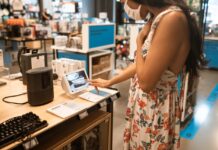The digital age has brought immense transformation to industries across the board, and food and beverage brands are no exception. The rapid evolution of social media platforms, mobile apps, and e-commerce has shifted the way consumers engage with food brands, demanding that companies rethink their marketing strategies. In this op-ed, we will examine the most successfuldigital marketing programs in the food and beverage sector, discussing how innovative brands are leveraging technology to engage consumers, build loyalty, and achieve measurable success.
The Digital Revolution in Food and Beverage Marketing
The rise of digital platforms has significantly altered consumer behavior in the food and beverage space. Food delivery services like Uber Eats, Grubhub, and DoorDash have changed the way people access food, while platforms like Instagram, TikTok, and YouTube have given brands new ways to connect with audiences. The global food and beverage e-commerce market, which is projected to reach $169.7 billion by 2027, underscores the importance of digital marketing strategies tailored to today’s tech-savvy, convenience-driven consumers.
For food and beverage brands, the challenge is not just about getting attention in a crowded digital marketplace; it’s about maintaining relevance and fostering genuine connections. Successful brands are now embracing digital strategies that go beyond traditional advertising and instead focus on building lasting relationships with their audience through personalized, engaging content.
Personalization: The New Standard in Digital Marketing
Personalization has become a key pillar of digital marketing, particularly in the food and beverage sector. In an era where consumers expect tailored experiences, brands that can effectively leverage customer data to offer relevant, customized content and promotions are more likely to succeed. Personalization allows brands to deliver the right message at the right time, driving increased engagement and customer loyalty.
One example of personalization in food and beverage marketing is Starbucks’ digital ecosystem. Starbucks has successfully used data collected through its mobile app and loyalty program to personalize offers and rewards for its customers. The app tracks customer preferences and ordering history, allowing Starbucks to send targeted promotions based on individual tastes and buying patterns. For example, a customer who frequently orders a caramel macchiato might receive a discount on that specific drink, incentivizing them to make another purchase. By creating a personalized experience for each customer, Starbucks has been able to foster a sense of loyalty and encourage repeat business.
The Impact of Social Media Influencers in Food and Beverage Marketing
Social media influencers have become one of the most powerful tools in the digital marketing arsenal of food and beverage brands. With large, engaged followings on platforms like Instagram, YouTube, and TikTok, influencers have the ability to create content that feels authentic and relatable, resonating with consumers in ways that traditional advertising often cannot.
One of the most successful influencer campaigns in the food and beverage industry was the partnership between Dunkin’ and TikTok star Charli D’Amelio. In 2020, Dunkin’ collaborated with D’Amelio to launch “The Charli,” a signature cold brew coffee drink that quickly went viral. D’Amelio’s massive following on TikTok led to a surge in sales for Dunkin’, particularly among younger consumers. The campaign was successful not just because of D’Amelio’s popularity, but also because Dunkin’ allowed her to create a product that felt personal and authentic, leading her followers to feel a connection to the brand.
Another brand that has effectively used influencer marketing is Coca-Cola. Through its partnerships with various influencers and celebrities, Coca-Cola has been able to tap into different demographic segments and create campaigns that feel relevant to their target audiences. For example, the company worked with influencers to promote its seasonal flavors, such as its limited-edition holiday cans. These influencer endorsements have helped Coca-Cola maintain a strong presence on social media and remain top-of-mind for consumers year-round.
E-Commerce and the Future of Online Food and Beverage Sales
The growth of e-commerce has had a profound impact on food and beverage marketing. Online shopping for food has become the norm, with consumers increasingly turning to platforms like Amazon, Walmart, and grocery store websites to purchase their groceries. In response, food and beverage brands have developed e-commerce strategies that cater to the convenience-driven shopper.
One brand that has excelled in e-commerce is Blue Apron, a meal delivery service that has successfully integrated digital marketing strategies to drive online sales. Blue Apron’s success lies in its ability to leverage digital channels, such as social media, email marketing, and search engine optimization, to reach consumers at every stage of the buying journey. The company’s targeted ads, which promote specific meal kits based on users’ browsing habits, have been instrumental in converting potential customers into paying subscribers. Additionally, Blue Apron’s strong presence on platforms like Instagram and Pinterest allows it to connect with consumers looking for meal inspiration, while its easy-to-navigate website streamlines the online purchasing process.
Similarly, Coca-Cola has embraced the e-commerce boom by launching its own online store. By partnering with delivery services like Instacart and leveraging its massive social media presence, Coca-Cola has made it easier for consumers to purchase its products directly from home. This seamless integration of e-commerce and digital marketing has helped Coca-Cola maintain strong sales even as traditional retail channels have faced challenges.
The Power of User-Generated Content
User-generated content (UGC) has become a cornerstone of successful digital marketing programs in the food and beverage industry. UGC refers to content created by consumers, such as photos, videos, and reviews, that showcases a brand’s products in an authentic, relatable way. For food and beverage brands, UGC can be an invaluable tool for building trust and encouraging engagement.
An example of successful UGC marketing is Lay’s “Do Us a Flavor” campaign. In this campaign, Lay’s invited customers to submit their own flavor ideas, with the winning flavor being added to the brand’s product line. The campaign not only generated excitement and engagement from consumers but also led to an influx of user-generated content, including social media posts, videos, and reviews of the new flavors. This grassroots marketing approach helped Lay’s build strong relationships with its consumers and drive sales.
As the food and beverage industry continues to embrace digital transformation, the brands that succeed will be those that can effectively leverage digital tools to connect with their consumers on a personal level. By embracing personalization, influencer partnerships, e-commerce, and user-generated content, food and beverage brands can build deeper relationships with their audiences, drive sales, and achieve long-term success. As technology continues to advance, the possibilities for digital innovation in food and beverage marketing are limitless, and brands that stay ahead of the curve will be well-positioned for the future.
In the digital age, success is not just about creating the best product—it’s about creating a digital experience that resonates with consumers and fosters a sense of loyalty. Food and beverage brands that can master this dynamic landscape will continue to thrive in a competitive marketplace.



